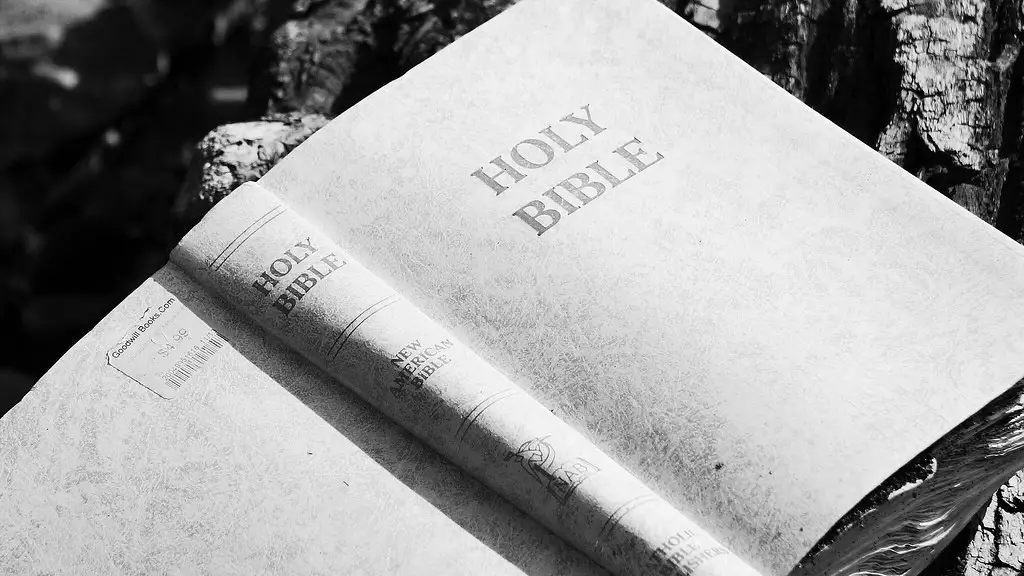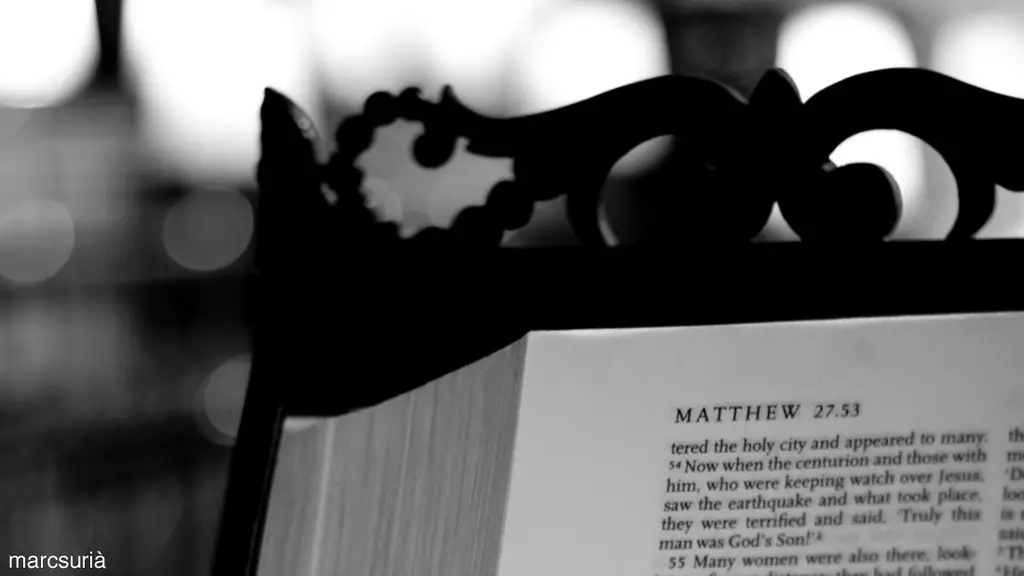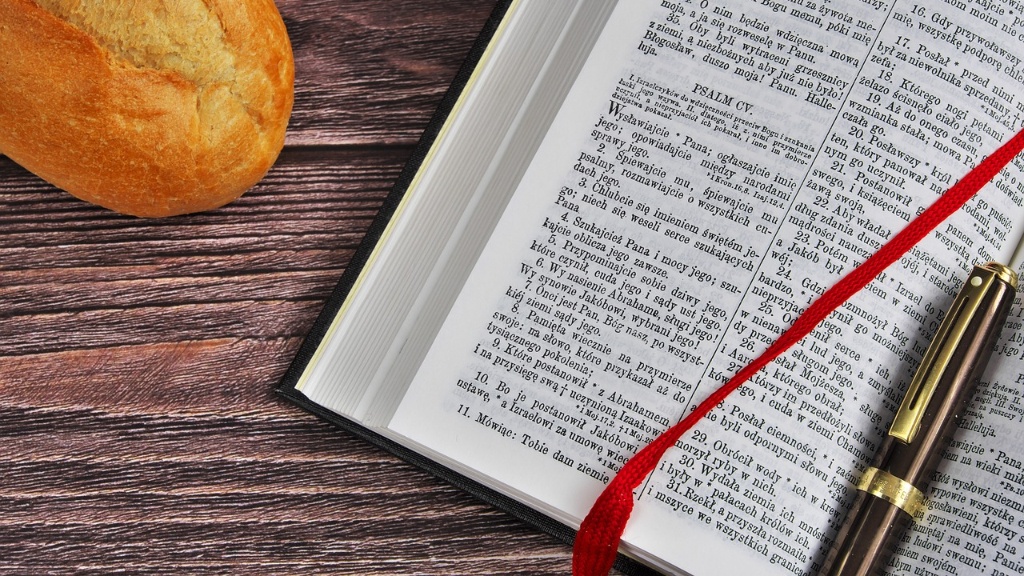Overview of Horoscopes and the Bible
Horoscopes are a belief system based on the interpretation of the stars and their astrological meaning. Rooted in many cultures and religions, this practice has been used as a form of prediction and prognostication for thousands of years. The Bible, however, offers a different perspective on the use of astrology and the practice of horoscopes.
The Bible takes a firm stance against the practice of horoscopes, discussing it in various places within the text. These views are brought forth in different ways, depending on the translation. For instance, the King James Version of the Bible warns against the practice as a form of forbidden divination. This version interprets a handful of verses from Isaiah as a direct condemnation of astrology and horoscopes, comparing them to the heathen nations.1 Numerous other translations of the Bible express much of the same sentiment, though there may be slight variations in each interpretation.
In other verses, the Bible warns against consulting people who use astrology or relying on its predictions. Some translations interpret certain passages as being a condemnation of entire astrological systems. This interpretation is seen in Deuteronomy 18:9-12. Here, the Bible clearly states that following the signs of the zodiac and the relating of fortunes is an abomination.
Ways Astrology Can Conflict with Judaeo-Christian Beliefs
Beyond the direct warnings given about the use of horoscopes, there are several other ways in which astrology stands in conflict with Judaeo-Christian beliefs. Firstly, Astrology is often seen as a form of idolatry. In both Judaism and Christianity, the worship of other entities besides the divine is seen as a form of evil and should be avoided.
In addition to its idolatrous nature, those of the Judaeo-Christian faith even interpret astrology as a false form of divination. In a number of Bible passages, God expresses his disapproval of divination, and Astrology is seen as a form of divination. In Isaiah 47:13-14, it states “Let now the astrologers, the stargazers, the monthly prognosticators, stand up and save thee from these things that shall come upon thee. Behold, they shall be as stubble; the fire shall burn them.”
Astrology is seen as a deceitful practice and can lead one astray from a spiritually righteous life. In response to this, the Bible consistently warns of, and in many cases prohibits, the reliance on any other type of guidance beyond it. Proverbs 3:5-6 states “Trust in the Lord with all thine heart and lean not on thy own understanding. In all thy ways acknowledge Him, and He shall direct thy paths.”
Acceptance of Astrology and the Bible
Though there is a clear stance against the practice of astrology, some Christians do accept astrology as a legitimate form of divination. This is based on the belief that divination can be used in the Christian context, as long as the interpretation of the stars is seen as a means of understanding the will of God instead of relying upon it as a form of prediction.
Furthermore, some may interpret certain biblical references to astrological signs and seasons as an allowance of astrology in the Judaeo-Christian beliefs. For example, in Genesis 1:14, it states “Let there be lights in the expanse of the sky to separate the day from the night, and let them serve as a sign to mark the seasons and days and years.”. This could be taken to refer to the practice of noting certain astrological signs as a way of understanding the will of God.
However, even with the above interpretations, many Christian believers still avoid the practice, citing it as a form of dangerous and ungodly speculation. Supporters of this stance highlight various verses in the Bible to prove that the use of astrology is indeed sinful. As a result, those of the Judaeo-Christian faith are often discouraged, or even prohibited, from using astrology or divination of any type for personal, spiritual guidance.
Religious Leaders and Horoscopes
Religious leaders from both Judaism and Christianity have over the years spoken out against the practice of horoscopes, further emphasizing the hostile stance of the Bible to this practice. In recent times, with the rise of popular media, the stance has had a renewed sense of relevance.
In many cases, leaders from both religions have gone as far as to say horoscopes are tantamount to witchcraft and satanism. In one notable instance, Pope Francis warned Catholic believers to avoid any form of horoscopes and astrology, as they can lead people away from the truth of God. This sentiment has been echoed by other high-profile religious leaders, such as the Archbishop of Westminster, Cardinal Vincent Nichols, who cautioned believers against engaging in a practice which has “roots in superstition and error”.2
In addition, rabbinical leaders in Judaism have also warned against the practice of horoscopes. Many of their warnings center around the rampant commercialization of astrology, with many religious leaders stating that the practice has become associated with cults and fringe religious practices, which are deemed to be a threat to the Jewish nation.
The Role of New Age Philosophy in Astrology
Another factor that can further muddle the debate on horoscopes is the role of the New Age movement in the modern perception of astrology. Advocates for New Age spirituality have championed the use of astrology and other forms of divination to get in touch with a higher spiritual power. As a result, many believers today may sometimes take a more open and accepting stance towards horoscopes and astrology.
Such is not the case with the biblical perspective, however. New Age spirituality is rejected by both Judaism and Christianity. Divine revelation and redemption are seen as only possible through the grace of God, and thus astrology can only be seen as a distraction from this connection.
Arguments Against the Bible
Though there is a clear stance against the practice of astrology outlined in the Bible, there are those who argue against it. These arguments primarily center around the notion that the Bible is out of touch with the times, as well as biased towards ancient astrological practices. Critics site passages from the Bible such as Job 38:31-33 which describe the stars, planets, and constellations in the sky as proof that God himself created astrology for man’s benefit.
While this argument may hold some water from a modern perspective, from a Biblical point of view, this would mean that God is the creator of sin. In contrast to this, the Bible often expresses the profound love God has for humanity, and it’s unlikely that would accept Him creating something which could lead people astray.
Summary of Bible’s View on Horoscopes
In conclusion, it can be seen that the Bible takes a firm stance against the practice of astrology and horoscopes. Whether one takes a literal interpretation of the Bible or looks to scholarly interpretations, it becomes clear that astrology and its practices should be avoided by those of the Judaeo-Christian faith. Ascribing spiritual meaning to the movement of the stars has often been a source of debate within the two religions, and the warnings laid out in the Bible can serve as a guide for believers when it comes to understanding if the practice is in accordance with their faith.
Religious Groups and Astrology
Religious groups from both Judaism and Christianity have come out strongly against the use of astrology and horoscopes, citing it as a distraction from the divine message of Christianity. Many high-profile religious leaders such as Pope Francis and Cardinal Vincent Nichols have warned believers to stay away from practices that pertain to divination and superstition. Furthermore, these religions are seen as coming out of the Abrahamic tradition, with Judaism, Christianity and Islam all actively rejecting the practices of horoscopes.
Aside from religious groups, political groups have also come out against the use of astrology and horoscopes in both educational and personal life. This is particularly evident in the US, with multiple states taking strong stances against the practice and introducing legislation to prohibit it in government-funded programs.
In recent years, even scientific communities have come together to criticize the use of astrology. This is largely due to the lack of empirical evidence for the effectiveness of astrological predictions and the potential for it to be used to exploit those who are vulnerable. This has led to some forms of astrology becoming taboo even in more open-minded societies.
Cultural Perspectives on the Use of Horoscopes
The debate on the use of horoscopes varies greatly between cultures. In the West, horoscopes are often seen as silly and exaggerated predictions designed to make people feel better. As such, they don’t take the practice very seriously, mostly reserving it to the realm of entertainment. This is in stark contrast to the East, where horoscopes are taken seriously and regularly consulted for important decisions.
In Asian cultures, horoscopes are revered and seen as an important tool for consulting the future. This is largely due to the traditional practices of cultures such as China and India. It’s not uncommon for folks in these countries to use horoscopes for everything from relationships to careers. This reverence for the practice has been passed down for generations, with most people having a basic understanding of its principles.
In some cases, this practice has even been adopted by those of Western cultures, as some people look to Eastern methods of divination as a way of understanding their futures. This has resulted in a hybrid form of astrology which combines the traditional practice with elements of more modern beliefs.
Debates Surrounding Horoscopes
In recent years, debates surrounding the use of horoscopes have been ongoing. Some scholars argue that the practice is merely a form of superstition, while others claim it as a legitimate method of divination. Much of the debate centers on the lack of empirical evidence surrounding the efficacy of horoscopes, leading some to argue that it’s merely a way for people to feel better about their situations. Others point to the long history of the practice as a valid form of divination, claiming that it has been used for centuries by those in Eastern cultures.
Regardless, the debate surrounding horoscopes and astrology is complex. It involves a variety of perspectives, from both religious and scientific communities and from both East and West. Ultimately, it comes down to each individual believer to decide for themselves if the practice is in line with their personal beliefs.





